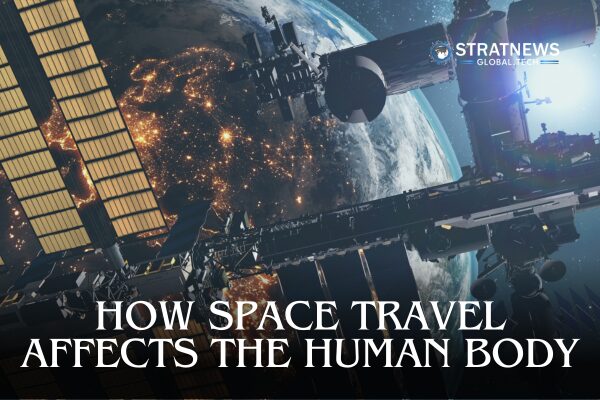How Space Travel Affects the Human Body
The human body is not naturally designed for space travel. Exposure to microgravity, high-energy radiation, and other space-related factors causes significant physiological changes. These changes can impact astronauts’ health, especially during long-duration missions.
Here’s a closer look at how spaceflight affects human health and the challenges astronauts face.
Why Is Space Travel Hard on the Human Body?
Human bodies have evolved to function under Earth’s gravity, atmospheric composition, and radiation levels. In space, these conditions change dramatically, placing stress on the body.
According to Afshin Beheshti, director of the Center for Space Biomedicine at the University of Pittsburgh, space travel presents both physical and psychological challenges. The longer astronauts remain in space, the greater the risks.
Chris Mason, a professor of physiology and biophysics at Weill Cornell Medicine in New York, highlights the need for personalised risk assessments. Studying astronauts with different health backgrounds and mission types can help develop better protective measures.
What Are the Dangers of Space Radiation?
On Earth, the atmosphere and magnetic field shield us from harmful cosmic radiation. In space, astronauts lack this protection. As a result, they face increased risks of:
- DNA damage
- Cancer
- Neurodegenerative diseases
- Cardiovascular issues
- Immune system weakening
Missions in low-Earth orbit receive some protection from Earth’s magnetosphere. However, astronauts venturing beyond, such as to the Moon or Mars, would be exposed to far higher radiation levels.
How Does Microgravity Affect the Body?
Gravity is essential for maintaining normal bodily functions. Without it, astronauts experience several changes, including:
- Fluid shifts: Fluids move toward the head, causing facial swelling and increased pressure on the brain and eyes.
- Bone and muscle loss: The lack of weight-bearing activity leads to bone density loss and muscle atrophy.
- Cardiovascular changes: Blood pressure regulation becomes difficult, leading to dizziness and fainting upon returning to Earth.
- Balance issues: The vestibular system, which controls balance and spatial orientation, becomes disrupted. This can cause coordination problems.
What About Isolation and Psychological Stress?
Long-term space missions require astronauts to live in small, isolated environments. Limited social interaction and a lack of natural stimuli can lead to:
- Increased psychological stress
- Sleep disturbances
- Cognitive performance declines
- Mood disorders
According to Beheshti, extended isolation could also heighten interpersonal conflicts. These tensions could negatively impact mental health and mission success.
What Happens After Returning to Earth?
Recovery from space travel depends on mission length. Short missions of a few days usually result in minimal long-term effects. However, for astronauts who spend months in space, recovery takes longer.
Many bodily functions gradually return to normal, but some changes persist. One major concern is Spaceflight-Associated Neuro-Ocular Syndrome (SANS), a vision impairment caused by fluid shifts. Some astronauts require corrective lenses after experiencing SANS.
Longer missions, such as those to Mars, could pose even greater challenges. Researchers are exploring ways to counteract space-related damage, including mitochondrial-based therapies.
What Knowledge Gaps Still Exist?
Despite advancements, scientists still do not fully understand all the effects of space travel. Some key unknowns include:
- How spaceflight impacts lung function
- The precise biological mechanisms behind space radiation’s effects
- The long-term impact of microgravity on brain function and mental health
Mitochondria, the energy-producing structures in cells, appear to play a crucial role in space-induced health issues. However, more research is needed to understand how they adapt and dysfunction in space.
Can Humans Reproduce in Space?
One major unanswered question is whether humans can safely reproduce in space. According to Beheshti, little research exists on human fertility and fetal development in microgravity.
Most studies have been conducted on animals, such as mice. The potential effects on human reproduction and long-term space colonisation remain uncertain.
What Has Recent Research Revealed?
Several recent studies have highlighted new findings about space travel’s effects:
- 2024: Research on astronauts from SpaceX’s Inspiration4 mission showed changes in brain function, heart health, muscle activity, kidney function, and immune response.
- 2024: A study revealed that astronauts experience headaches more frequently than previously thought. Among 24 astronauts who spent up to 26 weeks on the ISS, all but two reported headaches.
- 2023: A study found that astronauts on long-term missions experienced an expansion of the cerebral ventricles, which could affect brain function.
- 2022: Research on 17 ISS astronauts showed significant bone loss. Even after a year back on Earth, some astronauts had not regained lost bone density.
As space agencies and private companies plan for longer missions, understanding and mitigating these health risks will be crucial for ensuring astronaut safety.
With inputs from Reuters


